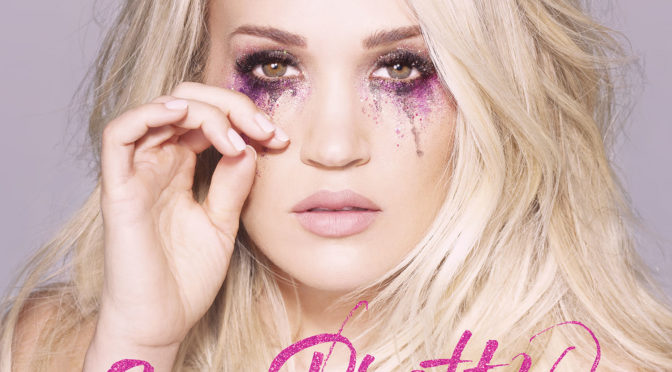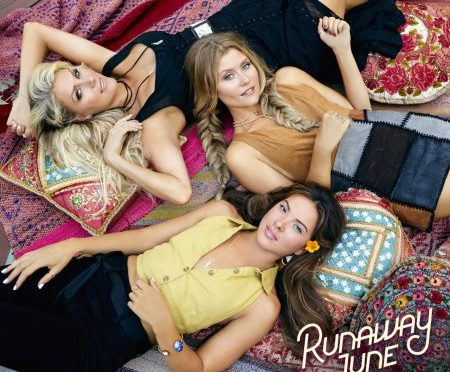This is the third year in which I’ve had the privilege of attending Medicine Stone, a three-day live music festival on the Illinois River in Tahlequah, Oklahoma. In 2016, I gave a full concert review, and last year, I tried to highlight some of the unsung heroes of the event. This year, Medicine Stone took on a slightly different purpose for me in light of my ongoing goal of seeing live shows in 2018. The festival provided a nice contrast to all the indoor shows I’ve been covering, as well as just being the only festival I’ve covered so far on this journey.
Turnpike Troubadours made a triumphant return to the stage after having to cancel several shows recently due to various medical and personal issues. I’ve discussed Turnpike’s phenomenal live shows before, but it was especially good to see them return to form after their cancelled appearances. In addition, they weren’t as wonderful as they normally are last year; the sound quality made it difficult to hear Evan Felker over the the rest of the band. After having to move their set from Friday to Saturday due to rainy weather, they put on a great show and returned to themselves in fine fashion.
As mentioned, the rain was a major issue on Friday. NO sets were cancelled, but everything was moved inside a tent, the main stage being uncovered. It didn’t provide enough cover for everyone present, so many of us sat under canopies or just out in the rain for some of Friday night’s performances. Reckless Kelly’s lead singer called it the “cheeseburger tent” as they played their set. I’d been especially excited to see them, for they had been outstanding in 2016 and had not come to Medicine Stone in 2017.
As for performers I’d never seen live before, there were several standouts. Koe Wetzel may have his detractors, but the man puts on a ridiculously energetic live show. This was one of the highlights of the whole weekend. Wade Bowen immediately followed, and to the surprise of no one, he’s also fantastic live. He was the artist on the lineup that excited me most when I first learned which artists would be playing this year. John Fullbright played on a smaller stage–actually, he played in the cheeseburger tent–on Friday afternoon, and his set was also a highlight. This aspect of Medicine Stone, having performers play more intimate shows on smaller stages, is one of my favorite things about the experience and a great way to discover newer artists and enjoy those artists whose songs shine in quieter settings.
As for the returning artists, I was most impressed with Red Shahan. He blew me away last year and again this time. AS far as I’m concerned, he can come back every year. Flatland Cavalry also impressed me this year after not really standing out for me in 2017, again due to their sound quality. And everyone knows Turnpike and Boland and Randy rogers all put on a good show, making them staples at Medicine Stone.
One thing I found a bit discouraging was the lack of women on the bill. Only Jamie Lin Wilson and Kaitlin Butts were on the lineup; they’ve both been there each year, but in 2017, there were several more women booked. I specifically mentioned sunny Sweeney last year as being a standout and expressed hope that she would return. Suzanne Santo also put on a great performance. Both Jamie Lin and Kaitlin are great artists, and I recognize that there is a lot more involved in booking more women at festivals than just simply doing it, but I definitely would have appreciated more effort in this area.
That said, overall, I felt that this was the strongest lineup I’ve yet seen at Medicine Stone. In terms of sonic styles within Texas/Red Dirt music, it also felt like the most diverse. There was a good balance of established artists and new talent as well.
IN light of the ongoing commentary on live music, I also have to say there is nothing quite like the camaraderie of a festival experience. I’ve been championing Medicine Stone for three years now, but it can’t be stressed enough that the atmosphere is just special at a festival. I haven’t been to a bad show yet in 2018; I’ve enjoyed some more than others, but each has provided its own unique insight. With Medicine Stone, even though I’ve been there before, it still stands out among the other shows, and not just for the number of artists, or even just for the quality of the music. It’s the social aspect, the way you see faces from years past and recognize them, the way strangers offer you a canopy to sit under to take shelter from the rain. For those three days, you’re all united by this incredible thing we call music, and it proves more than ever that music can unite us even in this divisive world in which we find ourselves. When you spend three days together, you understand why Jamie Lin Wilson was inspired to pick up her pen and write “Oklahoma Stars” about the experience. It is irreplaceable, and I highly recommend this festival to any fan of Red dirt or of live music in general.
Best Live Performers: Koe Wetzel, Wade Bowen, Red Shahan, John Fullbright, Turnpike Troubadours

